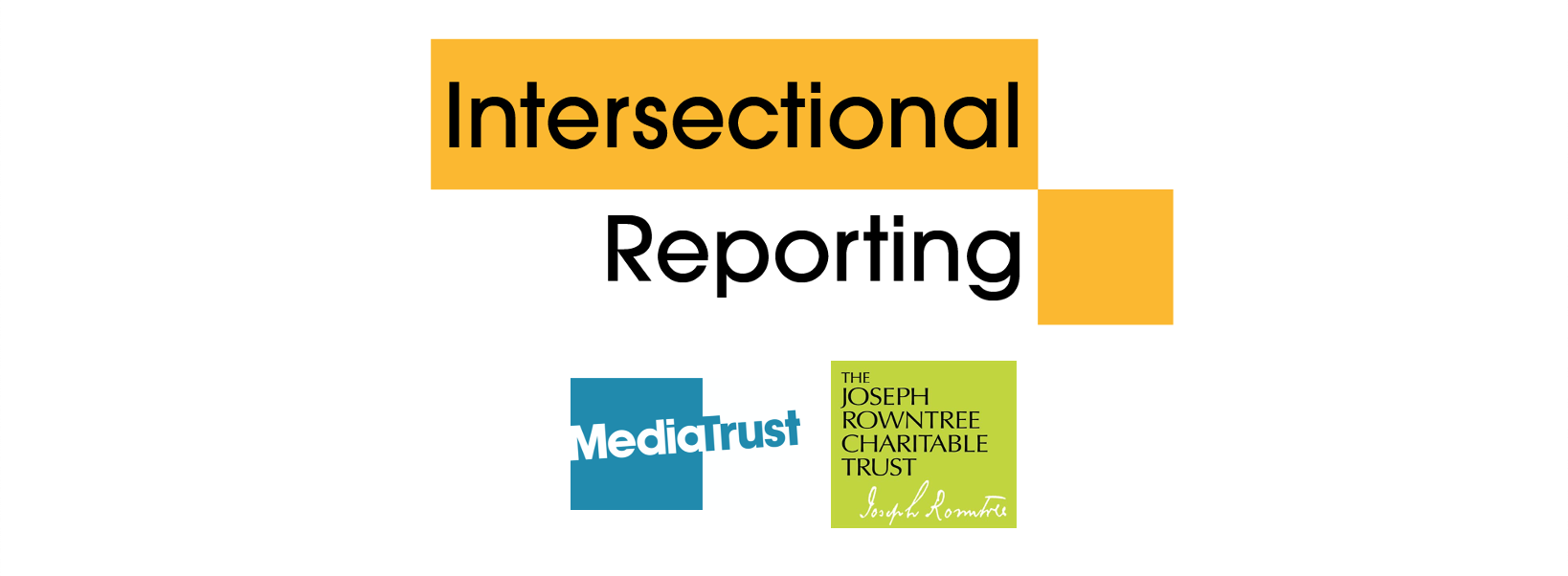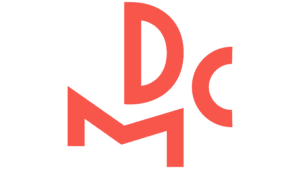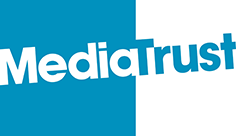Intersectional Reporting

Media Trust’s Intersectional Reporting Programme is aimed at helping charities and journalists incorporate intersectionality in storytelling and news reporting
Almost two thirds of UK news articles focus on single rather than multiple disadvantages when reporting on inequality. We believe this doesn’t reflect the lived reality for most marginalised individuals and communities, and it doesn’t help the public have a better or more nuanced understanding of intersectionality. We want to achieve more accurate news reporting based on narratives that better reflect the root causes of inequality and disparities in policy outcomes.
That’s why we’re so excited to be delivering another cycle of our Intersectional Reporting Programme with support from the Joseph Rowntree Charitable Trust.
The programme provides free strategic communications training to 15 charities looking to improve their understanding of, and to collaborate on, intersectional storytelling. We will also offer training to news organisations to strengthen their understanding of the ways overlapping social identities create multi-dimensional challenges that risk being overlooked through simplistic storytelling.
Training for charities
After a successful first round of training in 2022, we are looking to recruit our second cohort of 15 micro-medium sized charities for a series of workshops (three online and two in person) between March and May 2023.
The workshop topics will include:
- Defining intersectionality
- Research around how multiple disadvantages are reported in the media
- Key principles for framing stories through an intersectional lens
- The effective use of data sets in telling compelling stories and tackling misinformation
- Working collaboratively on storytelling
- How to pitch intersectional stories to the media
"It's been a brilliant set of workshops and I have learned something at every one, no time has ever been wasted as there was always a valuable discussion to have."
- Sam Murray-Darr, Ormiston Families (2022 cohort participant)
100% of our previous cohort participants rated the quality of the training content and materials as ‘Good’ or ‘Very good’ and said they would ‘reframe key communications to reflect intersectionality’ as a result of the programme.
The training will also include opportunities for peer networking and a speed pitching event, where charities will receive feedback from experienced journalists on how to get their stories into the media.
Apply are now closed.
* Please note we are currently only accepting applications from charities with an annual income of less than £2 million.
Charity programme content
Workshop 1
Defining Intersectionality
28 March, 10:00-15:00 (in person)
After introductions and time for cohort building, this kick-off session will discuss how to define intersectionality and what it means to each charity participant, taking into account their unique experiences, challenges and goals. The session will also involve participants in co-creating a set of values and principles that will underpin future work and be applied to activity across the programme.
Workshop 2
Framing your stories – Part 1
11 April, 10:00-12:30 (online)
This session will draw on Dawn and Jon’s previous research to explore the intersectional frames they’ve identified that are commonly used in international reporting and storytelling. The session will discuss the benefits, limitations, and implications of each of these frames.
Workshop 3
Framing your stories – Part 2
25 April, 10:00-12:30 (online)
Building on the insights uncovered in the previous workshop, this third session will focus on participants co-creating a small series of frames tailored to each charity and their beneficiaries to help them reshape their stories and messaging for future communications.
We plan to invite an experienced journalist to join this session to share their perspective and advice on trying to place intersectional case studies and stories in the media.
Workshop 4
Collaboration and the voice of lived experience
9 May, 10:00-15:00 (in person)
We hope to invite the cohort to join this fourth workshop in person, as we will be exploring collaboration in more depth. This session will focus on the ways charities can work together both within the third sector and beyond when creating and placing intersectional stories.
We also plan to invite an external guest contributor to discuss the ethics and considerations of working with those with lived experience while drawing on their own examples of media engagement and what worked well and what did not.
Workshop 5
The power of challenging misinformation and misrepresentation
23 May, 10:00-12:30 (online)
In this final workshop, we will look at the power of data to support intersectional approaches to storytelling and to challenge misinformation and misrepresentation.
In this session, we will also work with participants to finalise a practical action plan to consolidate and apply all their learnings beyond the programme.
Meet our trainers
We are delighted to have Dawn Hart and Jon Flinn as our principal trainers – see their bios below. Dawn and Jon are experts in this field, having recently co-authored Telling a Different Story for the Lankelly Chase Foundation.
Dawn Hart
Dawn Hart was formerly the Deputy Director for the Centre for Public Innovation, and has extensive experience working in direct delivery, policy development and management in the fields of criminal justice, substance misuse and young people. In 2018, she also served as Interim Head of Community Engagement at the Greater London Authority.
All her work is within the public sector with participatory voice at the centre of everything she does. She has been working in a freelance capacity for the last 17 tears, developing and delivering training, evaluation, coaching and leadership development.
Her clients have included the National Children’s Bureau, Centrepoint, Dudley Council, Tower Hamlets Council, College of Policing, Department for International Development, and the Greenwich Recovery College.
Dawn has a strong interest in how narratives are constructed. She has recently completed training in Narrative Therapy and an MA in Creative Writing. Her debut novel is due to published in December 2022.
Jon Flinn
Jon Flinn was lead author on Lankelly Chase’s Telling a Different Story report on news coverage of multiple and severe disadvantage.
A former journalist, he is Communications Director at DHA, a specialist policy, research and communications agency and is currently working with Crisis on the on-going evaluation of a four-year project supporting charities and journalists to reframe language and thinking around homelessness.
Jon has spent 20 years helping UK charities get their messages heard and has delivered more than 200 communications training sessions for organisations as diverse as youth club umbrella group, London Youth, and international environmental and human rights campaigners, Global Witness.
Training for reporters
We will be running a free Intersectional Reporting masterclass for journalists, reporters, and journalism students. This will build on our hugely successful Intersectional Reporting masterclass in January 2023, attended by more than 100 reporters.
This sector-wide masterclass will explore best practice and practical tips for reporting that gets to the root cause of complex societal issues, reflects the multiple challenges facing marginalised individuals, and amplifies under-represented voices.
The session will share research on communities experiencing multiple disadvantages, interdependencies of different inequalities, intersectionality as storytelling and story getting, expanding your sourcebook and much more!
Accessibility support
Funded accessibility support is available throughout the course including BSL interpreters, live captioning, early access to materials, large print, and regular breaks. If you have other requirements, please let us know and we will be happy to try and accommodate.
Get in touch
To register your interest or if you have any questions on the programme, please email Lauren Bailey, Programme Manager, at Laurenb@mediatrust.org.

Our Corporate Partners
We enjoy outstanding support from the media industry. Our partners include:







